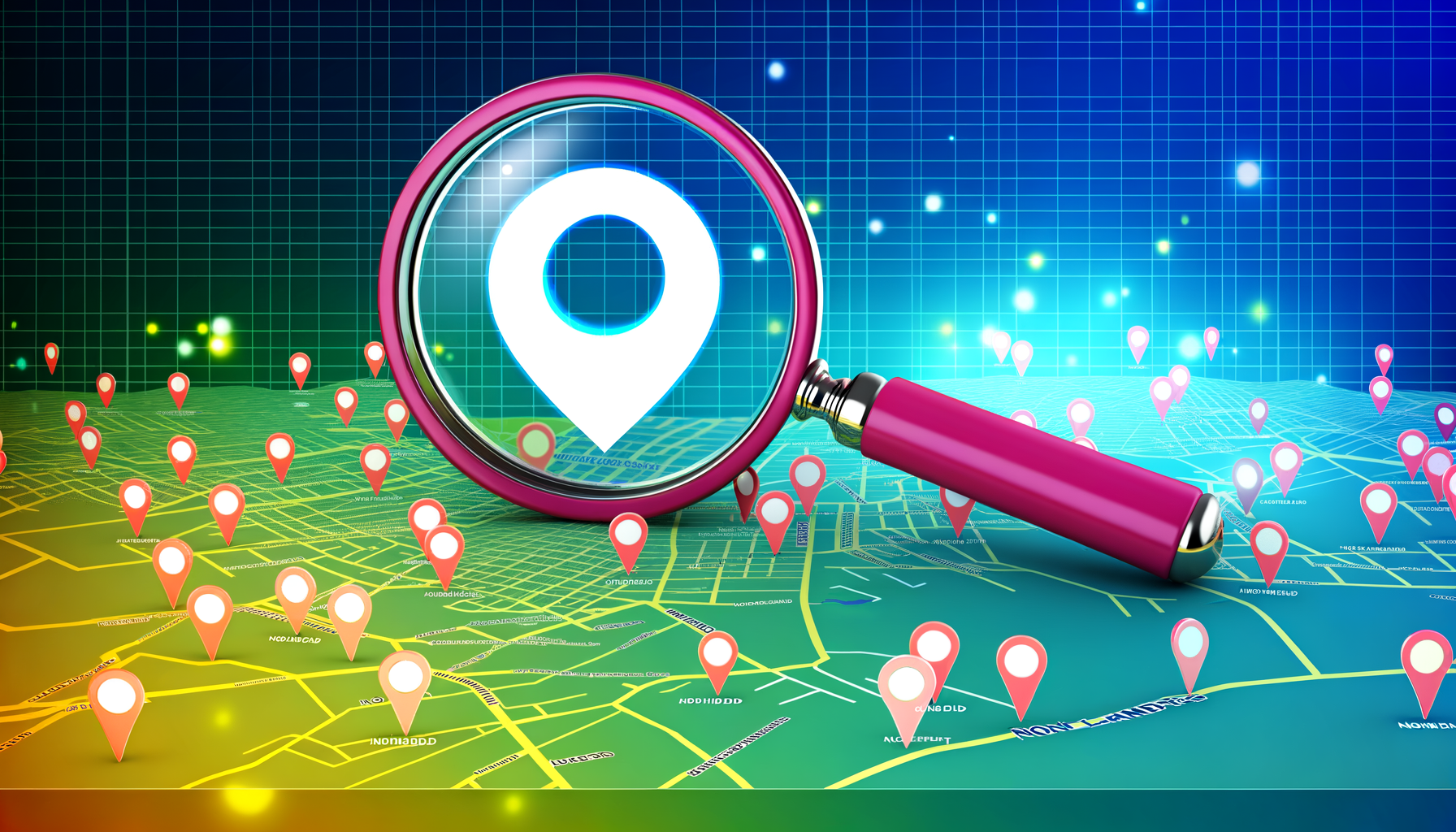
To optimize for Google’s latest local search features, you need to ensure your Google Business Profile (formerly Google My Business) is fully filled out, accurate, and up-to-date. Utilizing all the features provided, such as posts, Q&A, messaging, and services, is essential. Encouraging and responding to reviews, and adding photos and updates regularly can also boost your visibility. It’s important to note that local search optimization does not stop there; website optimization, local citations, and backlinks are also critical components.
Understanding Google’s Local Search Ecosystem
Before diving into specific optimization strategies, it’s crucial to understand the evolving ecosystem of Google’s local search. Google’s local search aims to connect users with businesses in their vicinity with solutions and services that match search queries. The platform frequently updates features like local packs, Google Maps, and the knowledge panel to enhance user experience and provide detailed, relevant information to potential customers.
The Basics of Local SEO
Local SEO is pivotal in ensuring your business appears in local searches. It includes optimizing both your website and your Google Business Profile. Fundamental elements of local SEO include NAP (Name, Address, Phone number) consistency, local keyword optimization, and building local citations—listings of your business on various directories and websites.
Google Business Profile Optimization
Your Google Business Profile is your digital storefront for Google’s local search. From business categories and services to hours of operation, every detail can significantly impact your local search performance.
Google Business Profile: The Heart of Local Search
Through your Google Business Profile, you can directly engage with customers and inform them about what your business offers. You should provide as much information as possible to make your profile robust and informative.
Fill Out Every Detail
- Create or claim your Google Business Profile.
- Ensure your business name, address, and phone number are not only correct but consistent across all online platforms.
- Select the appropriate category for your business. This is essential as it helps Google understand what type of queries your business should appear for.
- Write a compelling and comprehensive business description that incorporates relevant local keywords.
- Update your operating hours, including special hours for holidays and events when applicable.
- Set up messaging to communicate directly with customers who find your profile on Google.
Leverage Google Posts
Google Posts allows you to share updates, offers, events, and products directly in your Google Business Profile. Regular posting can keep your profile fresh, offer value to customers, and signal to Google that you are an active business.
Encourage and Manage Reviews
Encouraging customers to leave reviews and responding to them, whether positive or negative, can significantly improve trust and credibility. Reviews are a crucial ranking factor for local SEO, and a well-managed reputation can give you an edge over competitors.
Add Photos and Visuals
Businesses that frequently add new photos to their profiles often receive more clicks, direction requests, and calls. Photos can show off your products, services, and the atmosphere of your establishment.
Website Optimization for Local SEO
Your website itself needs to be optimized for local SEO to perform well in local search results.
Optimize for Mobile
With the increase in mobile searches, especially local, having a mobile-friendly website is non-negotiable. Google’s mobile-first indexing means your mobile site will impact your search rankings.
Local Keywords
Optimizing your website’s content and meta tags with local keywords is essential for local search visibility. Including city, region, or neighborhood names can help Google associate your site with local search queries.
On-Page Elements
On-page elements like title tags, meta descriptions, header tags, and schema markup should reflect local SEO efforts. Including location-based information in these elements can better position your site in local searches.
Embedding Google Maps
Embedding a Google Map on your contact page or in your footer can help users find your location more easily and provide a strong local signal to search engines.
Local Citations and Backlinks
Local citations and backlinks are other components of local SEO. Citations are listings of your business on directories like Yelp or the Yellow Pages. Backlinks—links from other websites to yours—serve as endorsements in the eyes of search engines.
Building Local Citations
Ensure your business is listed in local business directories and industry-specific directories. The consistency of your NAP information across these listings is crucial.
Acquiring Quality Backlinks
Acquiring backlinks from reputable local businesses and organizations can boost your local search rankings. Partnering with local influencers, participating in community events or sponsoring local teams or charities are ways to build backlinks naturally.
User Experience and Local SEO
User experience (UX) plays an important role in SEO. Ensuring fast site speed, easy navigation, and valuable content not only caters to the users’ needs but also signals to search engines that your site is a quality resource.
Monitoring and Adapting to Changes
Google frequently updates its local search algorithms. It’s important to stay informed and adapt your strategies. Tracking performance using tools like Google Analytics and the insights from your Google Business Profile can help you understand what works and what to refine.
Stay Informed on Google’s Updates
Following reputable SEO blogs, forums, and Google’s own announcements will keep you up-to-date with the latest changes and features that can impact local search.
Measuring Success
Metrics like search rankings, impressions, website traffic from local searches, and conversion rates provide valuable insights into your local SEO performance. Use this data to make informed decisions and adjustments to your strategy.
Finishing Thoughts
Optimizing for Google’s latest local search features requires a comprehensive approach. From populating and managing your Google Business Profile to ensuring your website and backlink strategies align with local SEO best practices, every element plays a crucial role. Monitoring changes and adapting your strategies is vital in staying ahead. By focusing on these key areas, you can increase your business’s visibility and attractiveness to local customers searching for the products or services you provide.
Frequently Asked Questions
What are Google’s latest local search features?
Google’s latest local search features include more prominent map listings, expanded local business profiles, integration of Google My Business information, user-generated content such as questions and answers, and reviews, and new attributes such as curbside pickup or online appointment availability. They are adding visual and engaging elements like photos and posts, and providing more detailed information about businesses directly within the map interface.
How can I optimize my Google My Business listing to take advantage of the latest features?
To optimize your Google My Business listing, ensure your information is up-to-date and accurate, including your hours of operation, address, and contact information. Use all available categories and attributes to describe your business, encourage customers to leave reviews, regularly answer questions, post updates and announcements, and add quality photos and videos.
What new attributes should I consider adding to my business profile?
Consider adding new attributes that are relevant to your business. These could include health and safety measures, online service options like appointments or consultations, delivery and pickup options, and accessibility features. Remember to update these attributes as your offerings change.
How can I encourage customer reviews and manage them effectively?
Encourage customer reviews by asking satisfied customers to leave feedback, providing links to your Google My Business review page, and making the process of leaving a review as simple as possible. Managing reviews involves responding to them promptly, thanking reviewers, addressing criticism constructively, and using feedback to improve your services.
What types of content should I post to my Google My Business listing?
Post content that is engaging and useful for your potential customers. This could include special offers, upcoming events, new products or services, or educational information related to your industry. Make sure the content is timely, and use good-quality images to increase engagement.
How frequently should I update the information on my Google My Business profile?
Regular updates ensure your business information remains relevant and accurate. Check your Google My Business profile at least once a month, and whenever there are changes to your operation, such as new services, changed hours, or temporary closures.
Is it important to add photos to my Google My Business listing?
Yes, adding high-quality photos to your Google My Business listing is crucial. Photos help showcase your products, services, and business environment, and can make your listing more engaging and appealing to potential customers, increasing your visibility in search results.
How do I make my business listing stand out in local search?
To make your business listing stand out in local search, use all the features Google My Business offers. This includes complete and accurate information, regular content posts, rich media such as photos and videos, and accumulating positive reviews. You can also use Google Ads’ location extensions to enhance your visibility.
How can I measure the success of my local search optimization efforts?
Measure the success of your local search optimization efforts by tracking your Google My Business insights, which provide data on how customers find your listing, what actions they take, and other engagement metrics. Additionally, pay attention to your ranking in local search results and the quantity and quality of your reviews.
Are there tools or services that can help me with local search optimization?
Yes, there are numerous tools and services that assist with local search optimization. These include local SEO software, reputation management platforms, and analytics tools. Consulting with local SEO experts or agencies specializing in local search can also provide additional insights and guidance.






